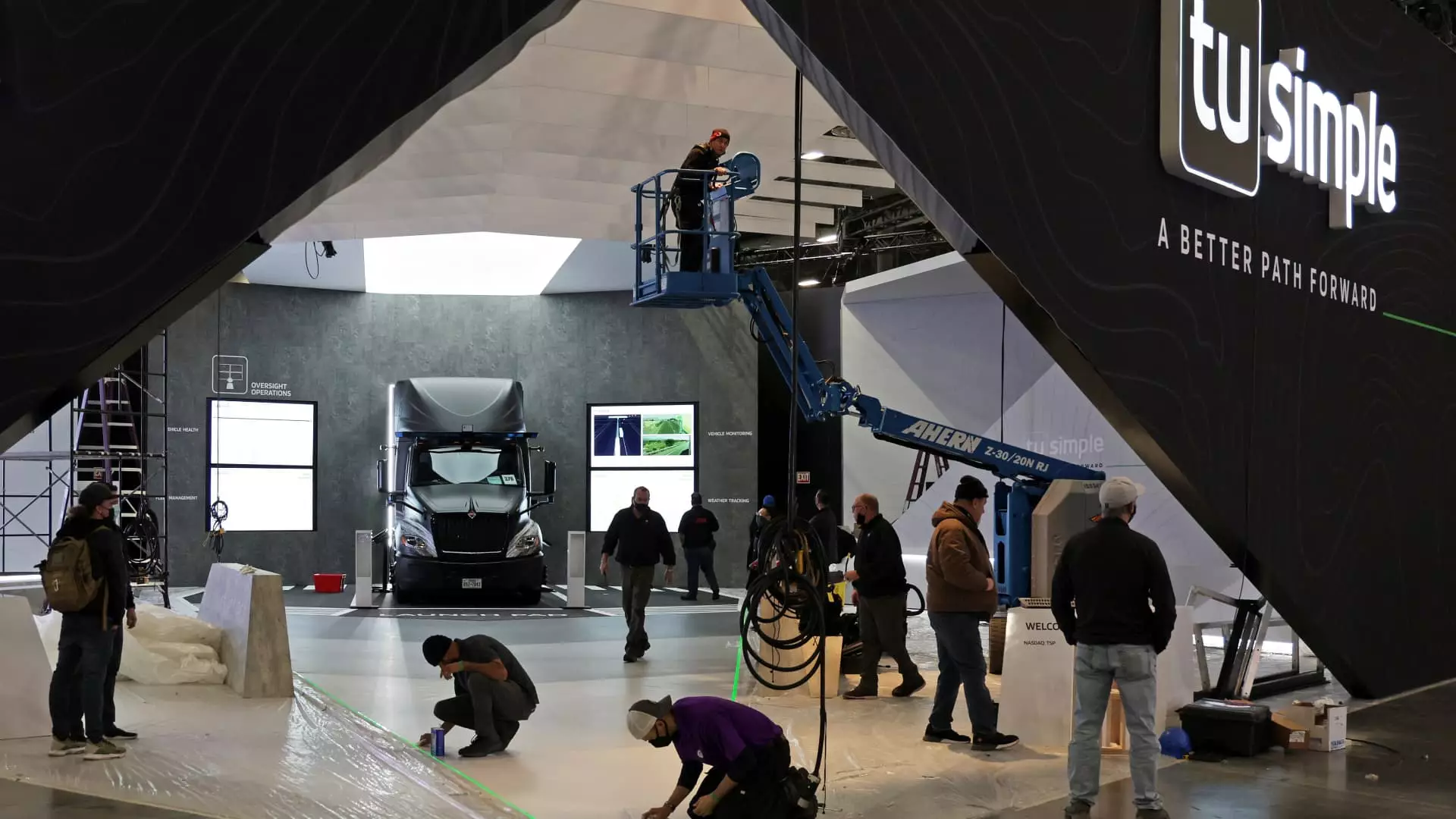The world of technology is rife with transformations, and few changes are as remarkable as the rebranding of TuSimple, the beleaguered autonomous trucking firm, into CreateAI. This strategic pivot aims to drive focus towards the burgeoning fields of video games and animation, areas that showcase rapid growth and increasing consumer demand. This article will explore the evolving landscape of TuSimple, now CreateAI, as well as the broader implications of its transformation amidst a challenging market landscape for self-driving technology and AI.
Not long ago, TuSimple was at the forefront of autonomous trucking innovation, operating across the competitive markets of both the U.S. and China. However, the company faced significant hurdles, including safety concerns relating to its vehicles, a hefty $189 million payout from a securities fraud lawsuit, and ultimately, delisting from the Nasdaq index back in February. These challenges were exacerbated by a general retreat of self-driving startups as the fanciful dreams of autonomy collided with the harsh realities of market sustenance and safety.
The situation at TuSimple took a pivotal turn when Cheng Lu reassumed the role of CEO after a stint away from the organization. Cheng’s leadership is a beacon of hope, with an ambitious timeline that projects breaking even by 2026, a target heavily reliant on generating revenue from a forthcoming video game. Cheng spoke about the plans based on the celebrated martial arts novels of author Jin Yong, a cultural icon in East Asia. Such an interesting pivot from trucking to entertainment encapsulates a burgeoning trend in tech companies seeking sustainability through diversification.
It is noteworthy that the new venture, dubbed CreateAI, is not only a shift in branding but also represents a full-fledged restructuring towards generative artificial intelligence applications for video games and animation. Generative AI is rapidly emerging as a game-changer in numerous fields, spearheaded by advancements from companies like OpenAI with their renowned ChatGPT. CreateAI is determined to leverage its existing expertise in autonomous driving tech to innovate within the animation community.
In this ambitious venture, CreateAI has introduced its first major AI model, named Ruyi. This open-source model, available on Hugging Face, champions visual creativity and is aimed at setting a standard for future projects within the entertainment sector. Such technology promises to not just enhance creative processes, but also to broaden accessibility for budding developers and artists, thanks to its open-source nature.
Looking ahead, CreateAI’s strategy allows it to anticipate transformative growth, projecting several hundred million dollars in revenue by 2027 with the full launch of its gaming product. One of the organization’s goals is to reduce the production costs of top-tier games by about 70% over the next five to six years, a feat that could revolutionize the gaming industry and its economic dynamics. This intent is underscored by a significant expansion in headcount, with plans to grow from approximately 300 current employees to around 500.
The partnership with Shanghai Three Body Animation to develop media based on the celebrated “The Three-Body Problem” novel solidifies CreateAI’s ambitions. This collaboration not only taps into an established narrative rich with cultural significance but also positions the company at the nexus of innovative storytelling and cutting-edge technology.
Navigating Market Challenges
Nevertheless, standing at the intersection of the evolving tech landscape and the flourishing gaming industry is not without its challenges. Cheng noted that despite U.S. restrictions on Chinese companies within the tech sector, CreateAI has implemented effective strategies, utilizing a blend of Chinese and non-Chinese cloud providers to mitigate potential operational hurdles. The ongoing geopolitical tensions introduced layers of complexity that the organization must strategically navigate to thrive.
The transformation of TuSimple into CreateAI represents a crucial shift not just in branding but in strategic direction and market focus. By pivoting towards video games and generative AI, the company is staking a claim in an industry where growth prospects look promising. While challenges abound, with the right vision and execution, CreateAI could very well illustrate a successful case of regeneration and adaptation in the fast-paced tech world. The journey ahead is unpredictable, but with Cheng’s lead and a future-oriented approach, CreateAI stands poised for an exciting new chapter.

